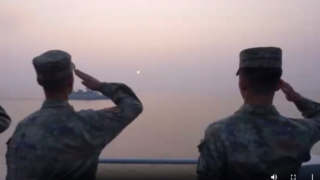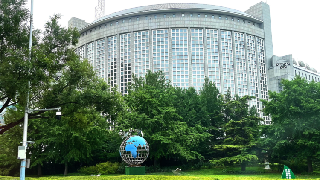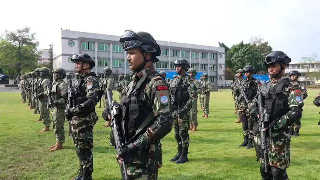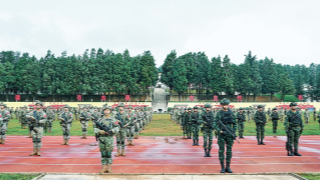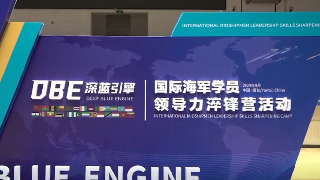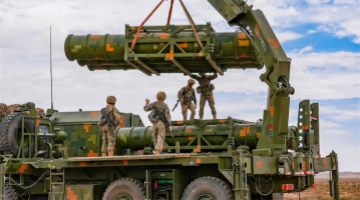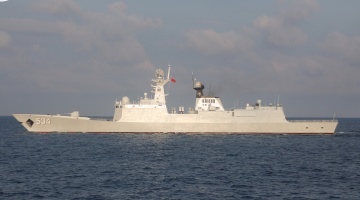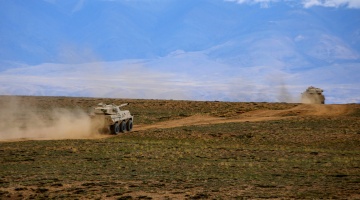
?
COVID 19 has baffled National Security managers all over the world. This medical emergency took shape of a pandemic in a very short span of time; the transnational character of this outbreak jolted the world and dictated an international response. It has highlighted fragility of national security apparatus and contours of response. This threat has all characteristics of a nontraditional national security threat, yet its response had to come from all segments of society. It also highlighted the HUMAN SECURITY element under the ambit of comprehensive national security. Unlike rest of the world China was struck with this disease without any warning. However due to its strategic decision making and rapid execution it was able to successfully manage this crisis. China’s focus on its human security in the past few decades paid dividends at this time of crisis.
Human security is perhaps the latest in a long list of coinages including interdependent security, global health security, cooperative security and comprehensive national security that inspires policymakers and academia to focus on other aspects of international security, which is something more than military defence of state interests and territory. Concept of security has for too long been comprehended narrowly: as security of territory from external aggression, or as protection of national interests in foreign policy or as global security. It has been related more to nation-states than to people. It ignored legitimate concerns of ordinary people who pursued security in their livelihood. For many of them, security symbolized protection from the threat of disease, famine, unemployment, societal crime, ethnic fissures, social conflict, political repression and environ-mental hazards. COVID 19 is a stark reminder for the world and China’s handling of the situation so far is a beacon of light.
It is said that "the hardest battles are given to toughest warriors". China has emerged as a proud warrior in combating this calamity. This exceptional display of individual and societal discipline extreme devotion and sacrifice will be a source of inspiration for the world. China has been able to reduce the human cost to a great extent notwithstanding the economic cost. The leadership took tough yet pragmatic decisions; their prime focus was the interest and wellbeing of its people. It has burdened a heavy economic cost for disruption of all economic activity but on the other hand it has ensured safety of its citizens. This calamity has transcended beyond borders and China has acted as a responsible nation by timely sharing all information with international agencies and other countries to deal with the issue. It is now providing material and technical help to many effected countries. There is however a need to analyze the issue from all angles.
Outbreak of this calamity has been with remarkable speed almost creating a snow ball effect. The timings of the outbreak coinciding with Chinese new year also augmented the problem. Yet the ripples of this pandemic could be felt as far a continental United States and Australia. Hence a sense of emergency also crept in for decision makers. It was also a cause of widespread anxiety. This was a concern for policymakers, and the public, too. Just from the perspective of threat perception, it is being observed that how people and organizations respond to crises—and how those responses, especially ones marked by fear of unknown, can themselves contribute to catastrophe and the outcome of the crisis. It was not the case with Chinese Leadership as China’s strategic culture has grown mature and robust over many decades. In face of such odds leadership took pragmatic and timely decisions and the dividends of which are being seen by the world.
A debate on how Governments all over the world are responding to this crisis has ensued, but in my opinion there cannot be a better solution than the Chinese model. There is strong logic to treat pandemic disease as a national security priority. Some would argue that applying the national security label to yet another issue and will object to “securitizing” public health. No nation has a strategy in place to deal with such novel threats but as nations carve out strategies in the aftermath of this crisis, any appropriate strategy should be tailored to the multifaceted nature of the threat pandemics pose and should include diplomacy and foreign aid along with public health preparedness.
The impact of COVID -19 has been felt worldwide through job cuts, the disruption of global transportation and supply chains, travel and tourism, a decline in corporate earnings notwithstanding the societal issue and long term public anxiety. This will have long term effects in global supply chains and vulnerable economies.
To treat a pandemic disease as a national security issue means synergizing all elements of national power and getting organized. Having identified pandemic diseases as a national security threat let us now analyze COVID 19 as a case study to draw pertinent lessons.
The sheer speed of both the geographical expansion and the sudden increase in numbers of cases surprised and quickly overwhelmed health and public health services in China, particularly in Wuhan City and Hubei Province. It urged the decision makers to act fast any delay could have been detrimental. Not only the disease had to be detected, cured and managed but its outbreak had to be minimized.
The timing of the COVID-19 outbreak was a huge problem, prior to China’s annual Lunar New Year holiday. However, it was not only the speed of the government’s response, but also the magnitude of that response that were influenced by the impending holiday travel time. Knowing that specific treatment and prevention options, such as targeted antiviral drugs and vaccines, were not yet available for COVID-19, China focused on traditional public health outbreak response tactics—isolation, quarantine, social distancing, and community containment. Yet the timely decisions taken by the government and extension of holidays although had an economic cost but played an important role in prevention and giving sufficient time for the government to respond. There were some questions raised about whether these actions are reasonable and proportional responses to the outbreak. This apprehension is still haunting policy makers. Some have argued that a number of these approaches may infringe on the civil liberties of citizens, and some of these measures may have deep socio-economic issues. However, one aspect that now been globally accepted is that societal rights must be above individual rights. The rights of those who are not infected, but at risk of infection, must be considered as well. Whether these approaches have been effective (eg, in terms of reduced infections and deaths averted), and whether these potential benefits have outweighed the costs (eg, economic losses), will be debated for years. Yet the world is more inclined now towards the Chinese model, some are following it as a choice and unfortunately some have to follow it as a compulsion after a lot of losses. But for the Chinese people it is fight against extreme odds that has been fought proactively by Chinese government in their best interests.
China acted as a responsible nation and very timely informed the world about the crisis. It helped the other countries to formulate their strategies in combating this crisis. China was also very forthcoming in sharing medical data with WHO and other agencies and became the part of international response. Timely and open sharing of information is an important part in fighting pathogens which are not restricted to physical boundaries.
Public awareness under such conditions of extreme anxiety is of prime importance. In this regard a delicate balance has to be maintained. Without spreading panic people have to be sensitized of the precautions and instructions which are to be followed by general public. This was done by China not only domestically but with the outside world also. All platforms print, electronic media and social media were used in a positive manner for passage of timely and factual information to public. Pandemics of this magnitude cannot be fought by the government alone. A whole of the nation approach is required to defeat such calamities. China has been a superb example of the same. Synergy of all organs of the state and mobilization of resources had been the hall mark of this campaign. Armed forces and all civilian departments organized all human and material resources to economize the effort at Wuhan which was the epicenter of outbreak. Leadership of China was able to galvanize local population in playing their part in cooperating with quarantine instructions. The global society is more interconnected than ever, and emerging pathogens do not respect geopolitical boundaries and have a transnational approach. Proactive investment in public health infrastructure and capacity is crucial to effectively respond to epidemics like COVID-19.It is imperative to increase international surveillance, cooperation, coordination, and communication about this major outbreak and to be even better prepared to respond to future new public health threats. China must now focus on adjusting tactics and strategies as new evidence becomes available. Much remains to be done and many questions remain unanswered. China must continue to pursue its policy of shared prosperity and a shared future of mankind. It should continue to collaborate with international scientific, health, and public health communities.

